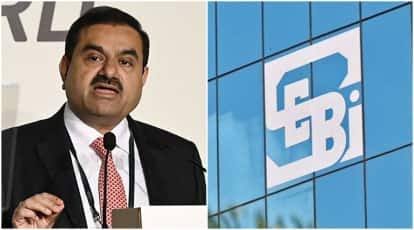The chairman of SEBI (Securities and Exchange Board of India) at that time is now serving as an independent director of NDTV, which is owned by the Adani Group. In January, a report from American investment firm Hindenburg Research accused the Adani Group of stock manipulation, leading to a significant drop in the conglomerate’s shares. This event raised questions about whether India’s stock market regulator, SEBI, was aware of the allegations and had taken any action to investigate them.
An investigation by the Organised Crime and Corruption Reporting Project (OCCRP) in collaboration with the Financial Times and The Guardian has uncovered documents indicating that SEBI had knowledge of these allegations nearly a decade prior. In January 2014, the Directorate of Revenue Intelligence (DRI), a financial investigative agency of the Ministry of Finance, sent a letter to the SEBI chairman at the time, UK Sinha, highlighting a case involving alleged over-invoicing of power equipment purchases by an Adani Group company. The letter suggested that the proceeds from this alleged over-valuation, estimated at Rs 6,278 crores, had been funnelled to Mauritius and hinted at potential connections to the Indian stock markets.
Sinha, who served as SEBI chairman from 2011 to 2017, claimed he could not recall the specifics of the letter due to the passage of time. He also mentioned that he retired six years ago and downplayed any connection between his directorship at NDTV and the allegations from nine years ago.
Transparency activist Arun Aggarwal asserted that SEBI’s failure to thoroughly investigate the Adani Group was more than a mere oversight, suggesting it may have involved collusion.
OCCRP’s investigation identified two individuals, Nasser Ali Shaban Ahli and Chang Chung-Ling, who allegedly used offshore funds in Mauritius to invest hundreds of millions of dollars into the Adani Group. These individuals had longstanding business ties with the Adani Group, particularly Vinod Adani, the brother of the conglomerate’s chairman, Gautam Adani. OCCRP claimed that these investments potentially violated Indian stock market regulations requiring a minimum 25% public shareholding in listed companies.
These allegations align with Hindenburg Research’s earlier claims that the Adani Group used offshore shell entities controlled by Vinod Adani to manipulate the valuation of its stocks, leading to an overestimation of its financial health. The Adani Group has denied these accusations, citing confirmations from adjudicating authorities and appellate tribunals that found no wrongdoing.
However, OCCRP reported a money trail linking Vinod Adani to one of the funds used for these investments, which intersects with the DRI’s investigation into alleged over-invoicing and diversion of funds to overseas tax havens.
In response to these developments, the Supreme Court established an expert panel to investigate potential regulatory failures related to the Adani Group, instructing SEBI to probe the allegations. SEBI initially denied prior investigations but later acknowledged its inquiries into Adani Group companies since 2020, involving foreign portfolio investors and tax havens.
The pursuit of true beneficiaries of foreign entities has proven challenging due to non-cooperation from tax-haven nations. These revelations cast a spotlight on SEBI’s handling of the Adani Group’s allegations and raised questions about regulatory oversight and transparency in India’s financial markets.

